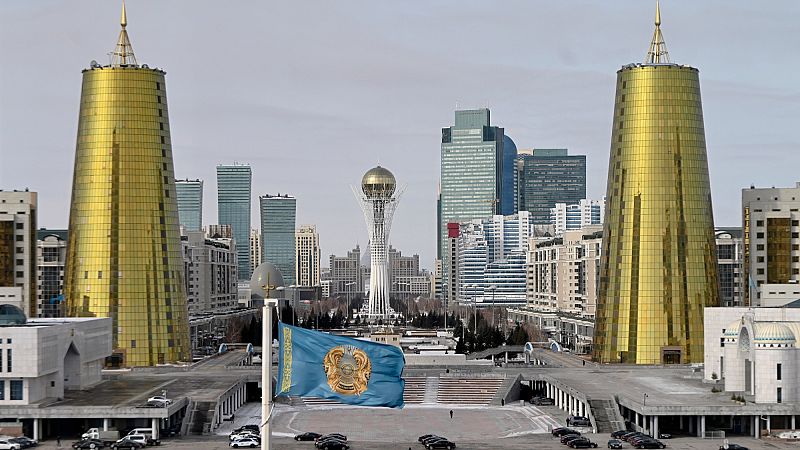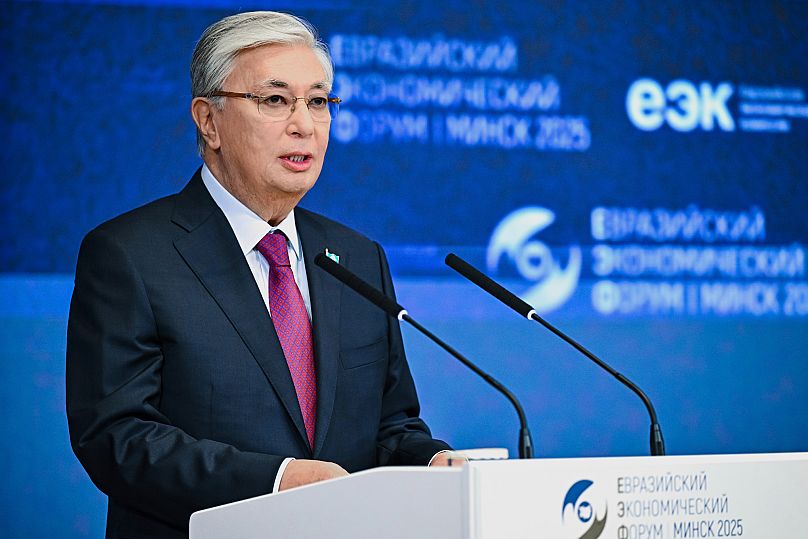
Kazakhstan's President Kassym-Jomart Tokayev has signed on Monday an amendment to the crime prevention law banning face coverings in public spaces.
"It is prohibited to wear clothing items in public places that impede facial recognition," the text of the new amendment says, providing a list of exceptions.
These include face coverings essential for work, such as welding masks.
Exemptions are also in place for the medical profession, civil defence, extreme weather conditions and participating in mass sports and cultural events.
While the amendment does not explicitly ban religious headwear, many understand that women will no longer be allowed to wear either a burqa or a niqab in public.
Hijabs, however, will still be allowed.
Unlike the niqab, which leaves only the eyes visible, and the burqa, which covers the entire face, the hijab covers the head but not the face.

While there has been a rise in the number of people wearing religious attire in Kazakhstan in the last five years, the hijab remains much more common than the burqa or niqab.
A common argument against the niqab and the burqa is that Kazakh women historically have not covered their faces and that the trend is new, imported from Arabic countries.
Opinions on social media regarding the ban are divided.
Many support the law, calling it timely. But others have criticised the move, calling it an attempt by the government to exercise greater control over the public.
"Rather than wearing face-concealing black robes, it's much better to wear clothes in the national style," President Tokayev said earlier this year.
"Our national clothes vividly emphasise our ethnic identity, so we need to popularise them comprehensively."
Other countries in Central Asia, including Kyrgyzstan, Tajikistan and Uzbekistan, have introduced similar restrictions on the use of head and facial coverings by female citizens.







